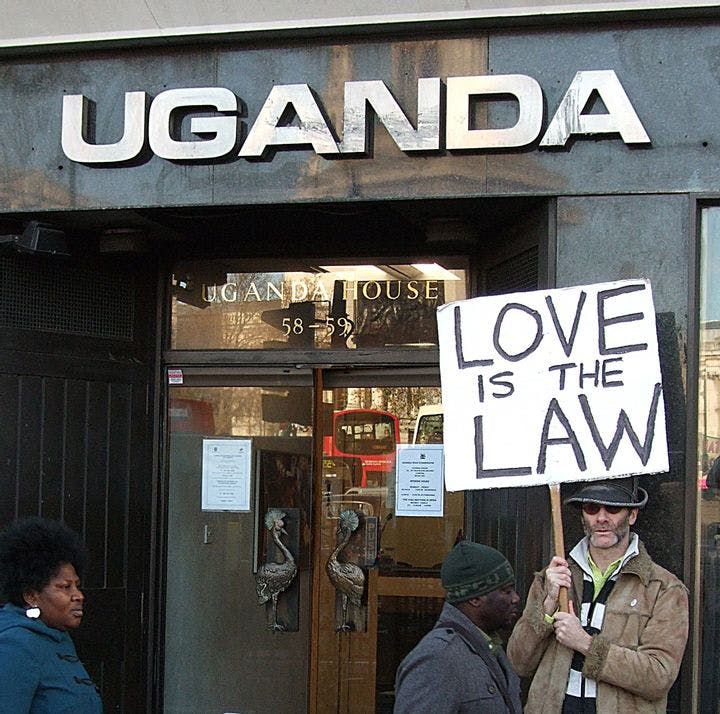Does fear of ‘cultural colonialism’ influence Africa's anti-gay laws?
– Erin Amato
Is the legacy of colonialism an actual factor in anti-gay laws, or is it just window dressing to distract from homophobia?
For Many Westerners, the acceptance of LGBT citizens is a simple matter of equality. But while many in the West (rightly) look with horror as African nations (including Uganda, Nigeria, and Ethiopia) enact draconian anti-gay laws, the beliefs animating those laws may be more complicated than simple, ugly homophobia.
In Christian Century, Frederick Nzwili talks with Bishop Arthur Gitonga of the Kenyan Redeemed Church, who believes “homosexuality is equivalent to colonialism and slavery.” His congregants agree. “We feel like [homosexuality] is a weapon of mass destruction,” says one. “It is not biblical and cannot bring blessing to Christians,” chimes another.
Gitonga is among a powerful group of Kenyan clerics who share the ultimate goal of criminalizing homosexuality in Kenya. Together, they launched “Zuia Sodom Kabisa” (“Stop Sodom Completely” in Kiswahili), a petition campaign with the goal of pressuring legislatures to declare harsh penalties for LGBT Kenyans.
Scholars balk at Gitonga’s comparison of LGBT acceptance and colonialism. “The differences are cultural,” remarks George Gona, a historian at the University of Nairobi. “There is little connection between homosexuality and the historical occurrences [of] slavery and colonialism.”
An irony, of course, is that Kenya’s thriving churches are a tangible reminder of successful Christian missionary efforts in Africa. Even as clergy express gratitude toward Western churches for mission work, some feel betrayed by the West, as their traditional cultural customs and values again go overlooked as Western values ascend. Now that the conversions are completed, many African clergy seek some measure of local control over religious practices.
Nzwili describes the “reverse trajectory” of Western success: many of the same countries that delivered Western missionaries their biggest successes are now the most virulent in their opposition to LGBT tolerance. In February, Ugandan president Yoweri Museveni signed a bill imposing life imprisonment for certain sexual acts. Viewing the West’s acceptance of LGBT people as imperialistic, Museveni echoed the sentiments of Nigerian president Goodluck Jonathan, who signed a similar law in January.
Uganda’s bill became the source of international outrage over its proposed death sentence for gays and lesbians. After helping to remove the death penalty provision (and deleting a clause that required other Ugandans to report ‘homosexual behavior’), Anglican Archbishop Stanley Ntagali endorsed the bill in its final form. Ntagali is rumored to have split from the International Anglican Commission over his disagreement with the consecration the openly-gay Gene Robinson as bishop of New Hampshire in 2003.
It’s worth noting that not all Ugandan religious leaders support such punitive treatment of their gay brethren — the Inter-Religious Council of Uganda, a coalition of Anglican, Catholic, and Orthodox churches, promotes nondiscrimination, and compassion towards LGBT individuals — but they are a minority.
Kenyan religious scholar Abdallah Kheir tells Nzwili that the anti-gay laws are not in retaliation for Western colonialism and slavery — if they had been, anti-gay laws would’ve been enacted far earlier long time. Says Kheir: “it has never been a problem until recently, when [gays and lesbians] came out into the open.”
The Source: “African Clerics: Gay Rights Equal Colonialism” by Frederick Nzwili. Christian Century, April 2, 2014.
Photo courtesy of Flickr/Russell Shaw Higgs
